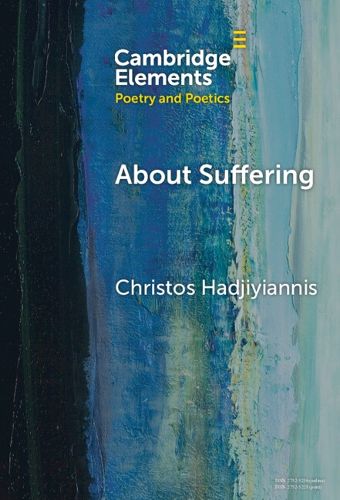Readings Newsletter
Become a Readings Member to make your shopping experience even easier.
Sign in or sign up for free!
You’re not far away from qualifying for FREE standard shipping within Australia
You’ve qualified for FREE standard shipping within Australia
The cart is loading…






Poetry has always courted suffering. Poets sing their suffering, we've been told, and there can be no poetry without suffering. Louise Glueck wasn't too sure about that. Suffering features centrally in her poetry and she discussed its role in poetry in her critical writing, where she often retained the language of poetry as martyrdom. However, she was keen to stress that suffering's part in composition has been misplaced and misunderstood, its function idealised and fetishised. Surveying a wide range of texts about poetry's relationship to suffering, and drawing surprising links between very different voices, this book situates Glueck both in the tradition of Rainer Maria Rilke's lyrical suffering and in the tradition of T. S. Eliot's impersonal approach to poetry. Glueck's most powerful and characteristic discussion of suffering, it argues, takes place in her 1992 volume, The Wild Iris.
$9.00 standard shipping within Australia
FREE standard shipping within Australia for orders over $100.00
Express & International shipping calculated at checkout
Stock availability can be subject to change without notice. We recommend calling the shop or contacting our online team to check availability of low stock items. Please see our Shopping Online page for more details.
Poetry has always courted suffering. Poets sing their suffering, we've been told, and there can be no poetry without suffering. Louise Glueck wasn't too sure about that. Suffering features centrally in her poetry and she discussed its role in poetry in her critical writing, where she often retained the language of poetry as martyrdom. However, she was keen to stress that suffering's part in composition has been misplaced and misunderstood, its function idealised and fetishised. Surveying a wide range of texts about poetry's relationship to suffering, and drawing surprising links between very different voices, this book situates Glueck both in the tradition of Rainer Maria Rilke's lyrical suffering and in the tradition of T. S. Eliot's impersonal approach to poetry. Glueck's most powerful and characteristic discussion of suffering, it argues, takes place in her 1992 volume, The Wild Iris.